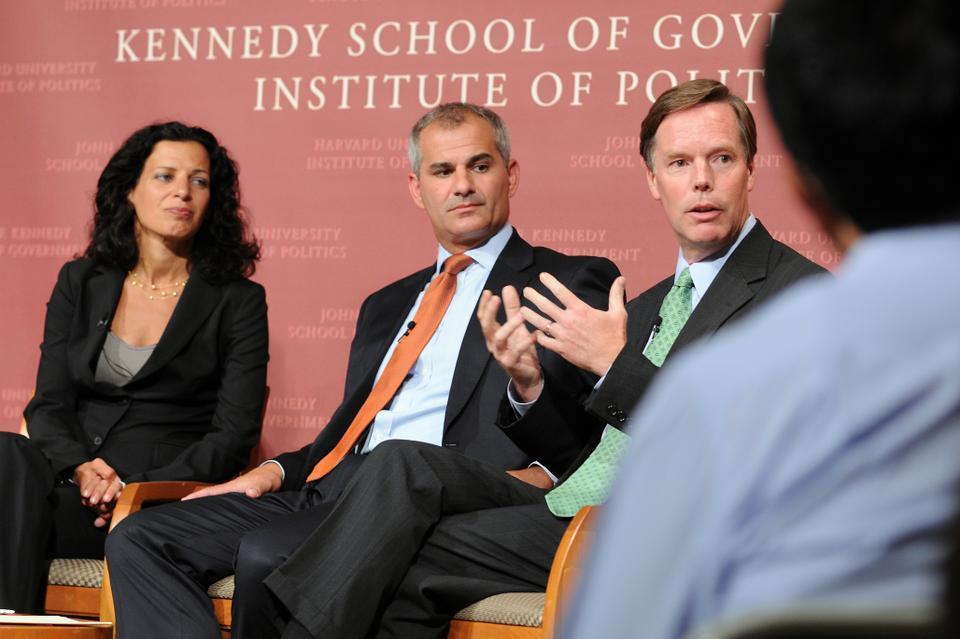
News
When Professors Speak Out, Some Students Stay Quiet. Can Harvard Keep Everyone Talking?

News
Allston Residents, Elected Officials Ask for More Benefits from Harvard’s 10-Year Plan

News
Nobel Laureate Claudia Goldin Warns of Federal Data Misuse at IOP Forum

News
Woman Rescued from Freezing Charles River, Transported to Hospital with Serious Injuries

News
Harvard Researchers Develop New Technology to Map Neural Connections
At IOP, Officials Reflect on Post-9/11 World

Ten years ago today, brothers Hamza al-Ghamdi and Ahmed al-Ghamdi arrived in Boston, made their way to Cambridge, and checked into The Charles Hotel for the night.
A week before, Hamza al-Ghamdi purchased tickets for himself and his older brother for United Airlines Flight 175—a flight on which they would, on September 11, 2001, hijack and crash into the South Tower of the World Trade Center.
As the tenth anniversary of the September 11 attacks near, events around Harvard are commemorating the attacks and their transformative effect on the country. Last night, the Institute of Politics hosted a forum discussion about how America has been shaped by the attacks in the past decade.
The panel—”9/11: Ten Years On”—focused on what moderator Graham T. Allison Jr. called the most pressing questions about post-9/11 America: Are we safer? Are we more aware? What mistakes have we made in hindsight?
Former Director of the National Counterterrorism Center Michael E. Leiter said that he is confident that America is a safer place after 9/11 because of, among other reasons, drastic changes in the intelligence community and acute sense of awareness among the government and citizenry prompted by the attacks. Still, Leiter and other panelists acknowledged that an individual or small group will always have the potential to do a great deal of harm.
“One big issue that our generation and the people in this room are going to face, is that technology makes it easier to kill people,” Leiter said, adding that “dumber and dumber people with less and less training are going to be able to harness these technologies.”
Kennedy School Professor of International Relations R. Nicholas Burns, who was finishing his first month as the U.S. Ambassador to NATO on 9/11, said that the U.S. needs to return to outsmarting its enemies instead of blindly applying force.
“What was interesting about the last decade is that the military was on the front, and diplomacy was on reserve,” Burns said, adding that “the diplomats, economists, aid workers, and journalists need to be the front line” instead of the military. “We can’t fight everybody. You can only do that so much.”
But like so many conversations about 9/11, the conversation inevitably strayed to personal stories from the panelists, who recalled their personal interactions with the tragedy. Leiter had his high school prom and swearing-in ceremony for the Navy in the Twin Towers, and ate his high school graduation dinner in the Twin Towers’ top floor restaurant, Windows On The World. Allison’s wife had bought a ticket for American Airlines Flight 11, but cancelled the trip last minute. Allison still has the boarding pass.
—Staff writer Caroline M. McKay can be reached at carolinemckay@college.harvard.edu.
Want to keep up with breaking news? Subscribe to our email newsletter.
